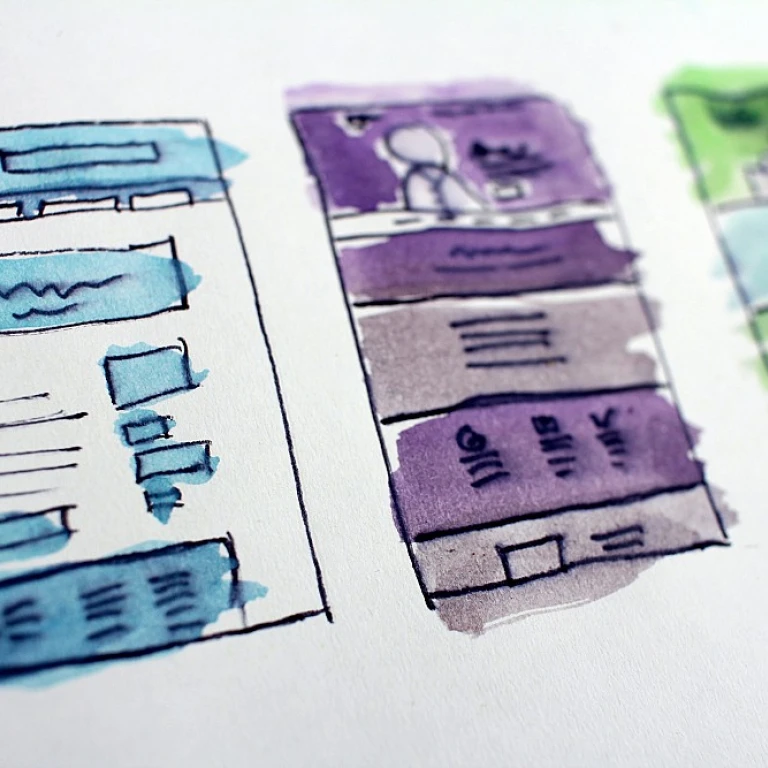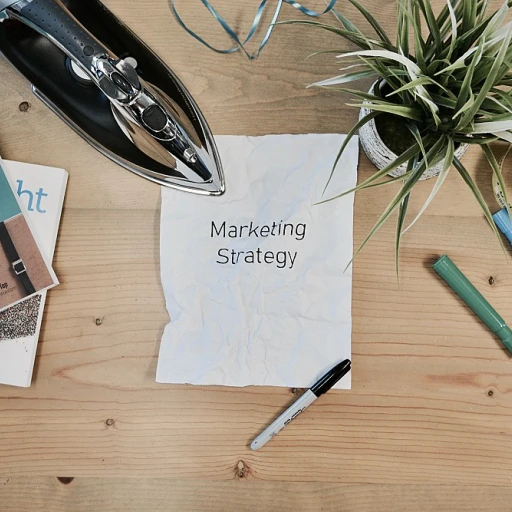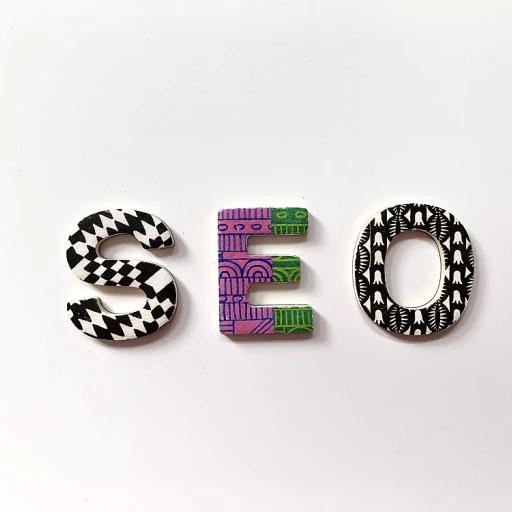Understanding the Role of AI in SEO
The Magic of AI and SEO
Artificial Intelligence is steering the helm of what we know as SEO today. With AI, improving website load speed and user experience isn't just futuristic talk. It's happening now, folks. Imagine your website performing at its peak, catching Google’s eye and pleasing your users at the same time.From AI to Better Load Times
First off, let’s talk load times. Nobody wants to wait around for a site that takes eons to load, right? Take a look around—is everything lagging or swiftly zipping by? That’s where AI comes into play with SEO. It’s all about making that website speed up. Faster pages get more love from search engines like Google.Crafting Better User Experience
So, how's the user experience on your site shaping up? Sluggish pages are a major turn-off, costing you users and rank. Tools powered by AI focus not just on speed but also on delivering richer experiences. Those timely shifts in loading times alongside web vitals can make a world of difference.Real Stories
I've seen countless webmasters struggle with this very issue. Websites dragging their feet, users bouncing off in a huff. But then, with the help of AI-driven insights and optimization tools, they’ve turned that struggle into success. Optimizing for performance, CSS, JavaScript, and even server response times can be a game-changer. Breaking down walls between loaded graphics and quick server response, using lazy loading, the way to smooth user experience is wide open. Remember, Google respects speed and performance. Want to learn about boosting your website conversion rate with AI? There's a whole avenue of possibilities waiting. By giving attention to AI and SEO combined, you'll see a boost not just in website speed but in how users perceive and interact with your content. Your site isn’t just another page on the web; it’s a digital storefront that should shine with speed and performance.The Impact of Load Speed on SEO
The Ripple Effect of Speed on Search Engines
Have you ever waited for what feels like an eternity for a webpage to load? You’re not alone. This delay often affects user patience leading them to click away, ultimately impacting your site’s SEO. Search engines, particularly Google, prioritize user experience. One crucial metric they look at is how quickly a page loads. If your website delivers lightning-fast speed, you’re ahead of the game. But sluggish loading times can decrease your site’s ranking, affecting visibility. Incorporating these factors into your strategy can enhance your SEO efforts:- Response Time: Aim for a server response time of under 200ms as a default. Target consistently quick load times to keep users engaged.
- Core Web Vitals: Google’s set of user-focused metrics gauge real-world performance. Monitoring these can help improve website speed.
- Image and Resource Management: Optimize images, use lazy loading, and minify CSS and JavaScript files.
Effortlessly Measure and Monitor
The good news is that plenty of free and premium tools exist that will help you analyze your website performance, especially in terms of speed.- PageSpeed Insights: Provides data on performance, offering suggestions for improvement on both mobile and desktop versions.
- Google Analytics: Offers insights into loading times and where users drop off.
- WebPageTest: Delivers a detailed breakdown of your web’s loading processes, enabling the identification of slow areas.
AI Tools for Analyzing Load Speed
Unlocking AI's Potential in Load Speed Evaluation
When we're talking about speeding up a website, AI-powered tools are like having a well-trained detective on the case. These tools meticulously examine various elements affecting site speed to deliver a seamless user experience. Here's the lowdown on how AI can boost your site's performance. First things first, AI tools like Google's PageSpeed Insights and others dig into the code, breaking down CSS and Javascript files to pinpoint what's slowing your site. These insights identify redundant scripts that inflate loading times and strain server response times. AI doesn't stop there. By analyzing user interactions and loading patterns in real-time, these smart tools reveal how images or videos might drag performance down. Ever heard of lazy loading? It's not just about being efficient; it's about letting the important stuff show up first. AI recommends lazy loading key parts, making sure that your website content appears exactly when users need it, enhancing their experience and keeping them on your site longer. Diving into more technical stuff, AI focuses on browser caching and server response optimization to trim down loading speed. This duo reduces the need to shrink frequent requests, polishing up the web vitals metrics that Google loves. With everything analyzed and enhanced, AI rolls out strategies to lessen load times and fortify website speed, ensuring your site is ready for any user thrown its way. Get more insights into how AI can be a game-changer for your SEO strategy by checking out this resource on AI SEO Automation Tools.Strategies to Enhance Load Speed with AI
Speeding Up Your Site with AI Know-How
Boosting your website's loading speed keeps users happy and encourages search engines like Google to give you a thumbs-up. Slow load times can result in frustrated users and dreaded bounce rates. On the flip side, a zippy site means better user experience and improved search engine rankings.Clever Techniques for Rapid Load Times
- Lazy Loading - This technique is like magic for images and videos, loading only what's in the user's view and delaying others till needed. It cuts down the initial load time and gives users a smoother experience.
- Optimizing CSS & JavaScript - Minifying CSS and JavaScript files trims the fat, reducing file size and improving website performance. Combine them where possible and place CSS in the page head for cleaner rendering.
- Server Response Timing - A server that waits around is bad news for site speed. AI tools can analyze and suggest improvements for faster server response time.
- Browser Caching - Store parts of your web page locally to speed up loading times the next time a user visits. AI can help configure cache settings for optimal web performance.
- Compressing Images - Large images can slow a site down. Use AI-powered image compression to keep visual quality while reducing file size, ensuring snappy load times.
Fresh Tools for Speed Analysis
Use AI tools, like Google PageSpeed Insights, to regularly check your site's speed performance. These tools offer suggestions to enhance your site and maintain an optimal user experience. AI not only helps you identify problem areas but also actively suggests strategies tailored to your unique web needs. Tools can predict when content delivery needs to be ramped up or when a server may need a tune-up. Try these AI-powered tactics to watch your loading speed skyrocket and stay an SEO winner!Case Studies: Successful AI SEO Implementations
The Real Results from Using AI in SEO
Imagine you're stuck in a traffic jam. That’s your website when its load speed is poor. Users get frustrated, they exit, and your bounce rate shoots up. AI in SEO is like that traffic helicopter reporting best routes, ensuring smooth flow and reduced congestion. Real-world examples show how AI optimizes site speed by examining complex website performance nuances and user interactions. Consider a popular news website where heavy traffic can slow everything down. The team decided to implement AI-powered tools for analyzing load speed and discovered their images were causing significant slowdowns. By utilizing AI-driven tools like Lazy Loading, the images only load when scrolled into view, improving both speed and user experience. Another example is an e-commerce platform struggling to maintain a competitive edge due to increasing load times when customers added items to the cart. Using AI identified that render-blocking resources, such as CSS and JavaScript files, were the culprits. By prioritizing essential scripts and deferring those non-essential until later, the site achieved faster load times, leading to higher conversion rates. A digital marketing agency experimented with AI-based frameworks for a client who hosted a resource-heavy website. By utilizing AI to fine-tune server response and caching strategies, they cut load times dramatically. This not only increased user retention but also earned high scores on Google's PageSpeed Insights, positioning them better in search engine results. These instances aren't just tales of success. They highlight how AI in SEO has the power to change your site’s load speed game for real, showing tangible improvement in web performance and search optimization. From optimizing images to smart caching decisions, AI helps unlock the full potential of a website. By addressing loading issues, site speed becomes less of a hurdle and more a competitive advantage. Through these gathered experiences, it becomes evident that AI's role in enhancing website speed and user satisfaction is crucial. And as search engines like Google consistently emphasize user experience, AI's integration into SEO strategies is far from optional—it's a necessity. It's time to move those digital gears and embrace AI to drive site speed, performance, and optimization to their peak. That’s the secret sauce, one site at a time.Future Trends in AI SEO for Load Speed
AI: The Next Big Thing for Load Speed
AI has already made waves in various aspects of SEO, like boosting load speed. Faster website speed is crucial for keeping users happy and engaged. With Google making it one of the top-ranking factors, no wonder AI is all about lending a helping hand here. From optimizing those bloated images to sprucing up server response times – AI’s precision and quick fixes can't be ignored.
Take for example, how AI tools are redefining website speed metrics. Core Web Vitals? You bet AI can tune them up. Pagespeed insights can be improved without pulling out your hair, thanks to AI analyzing load times and suggesting targeted tweaks.
Keep an Eye on AI Advancements
Sure, know-how and tools today might be doing great, but AI is far from done evolving. Performance analytics tied with AI are going to delve deeper, offering even more insightful and precise solutions to better website load times. Can you imagine a time when AI predicts changes before they're needed, thereby maintaining optimal speed?
Stay updated on AI's journey with SEO. Tools will continuously emerge and improve, addressing every pesky loading delay. Whether it's managing JavaScript files or CSS execution, there will always be room to improve website performance.
To explore more on SEO and User Experience integration, check this Enhancing User Experience.













